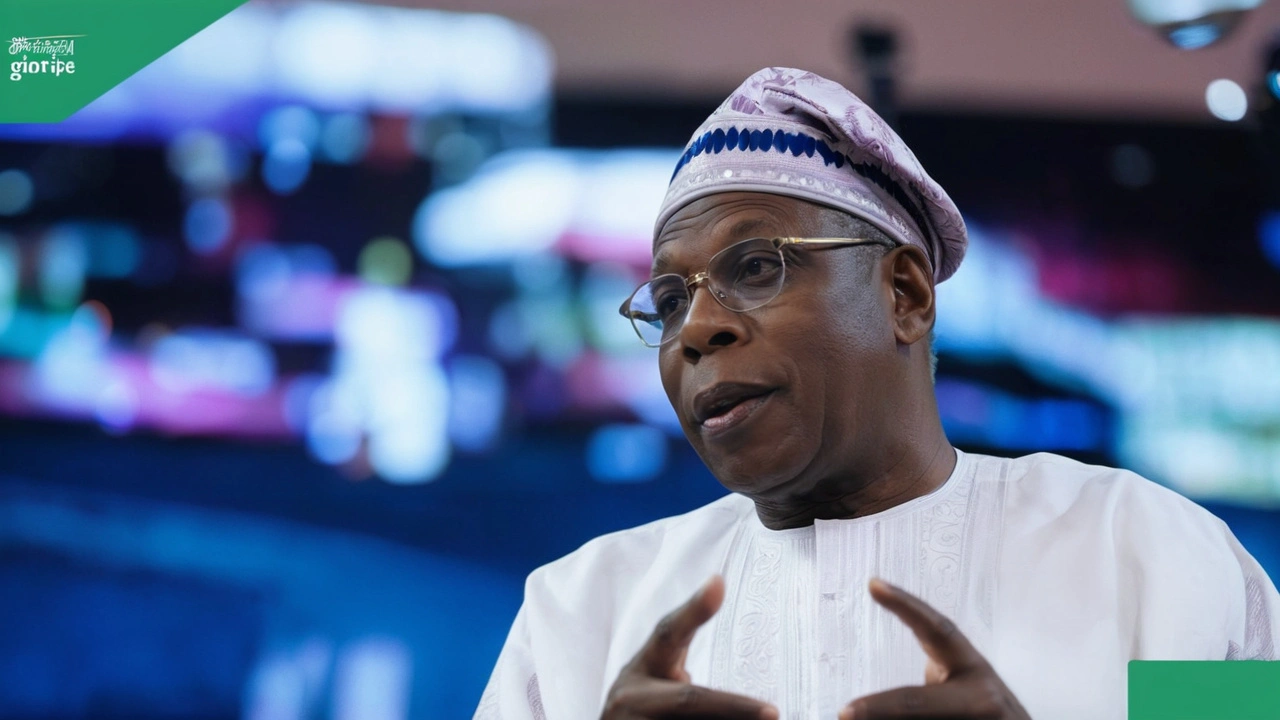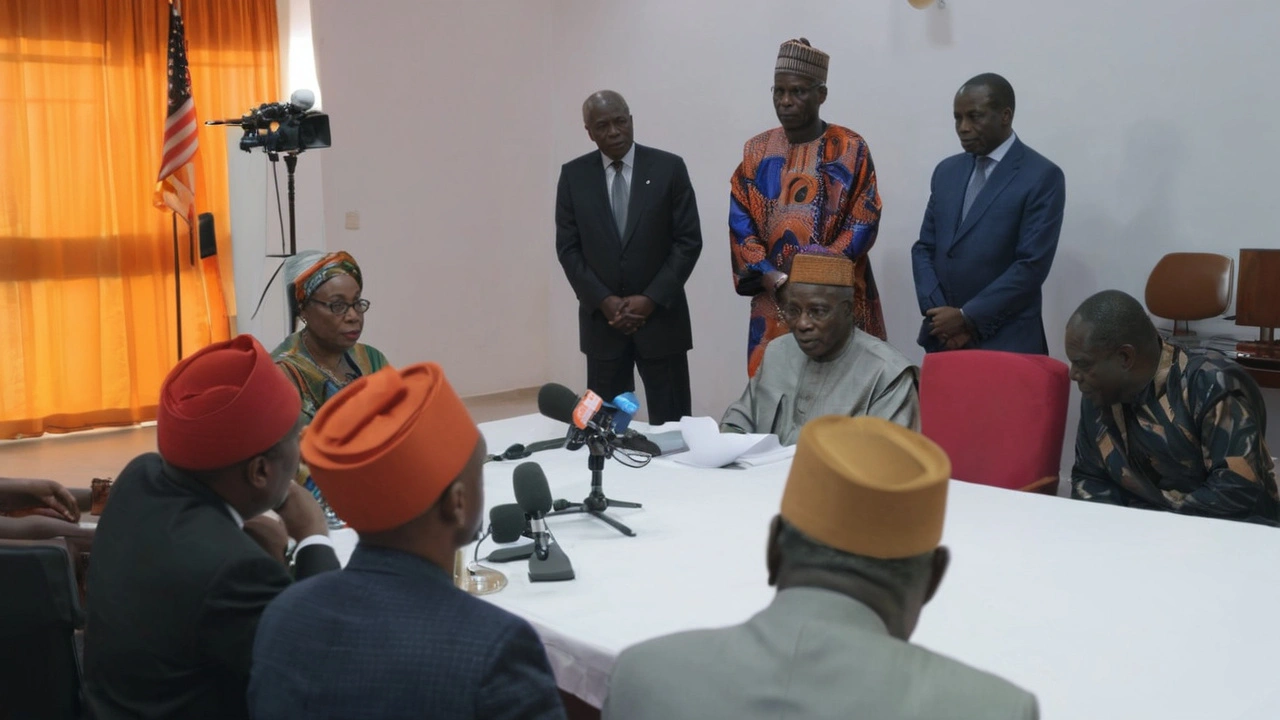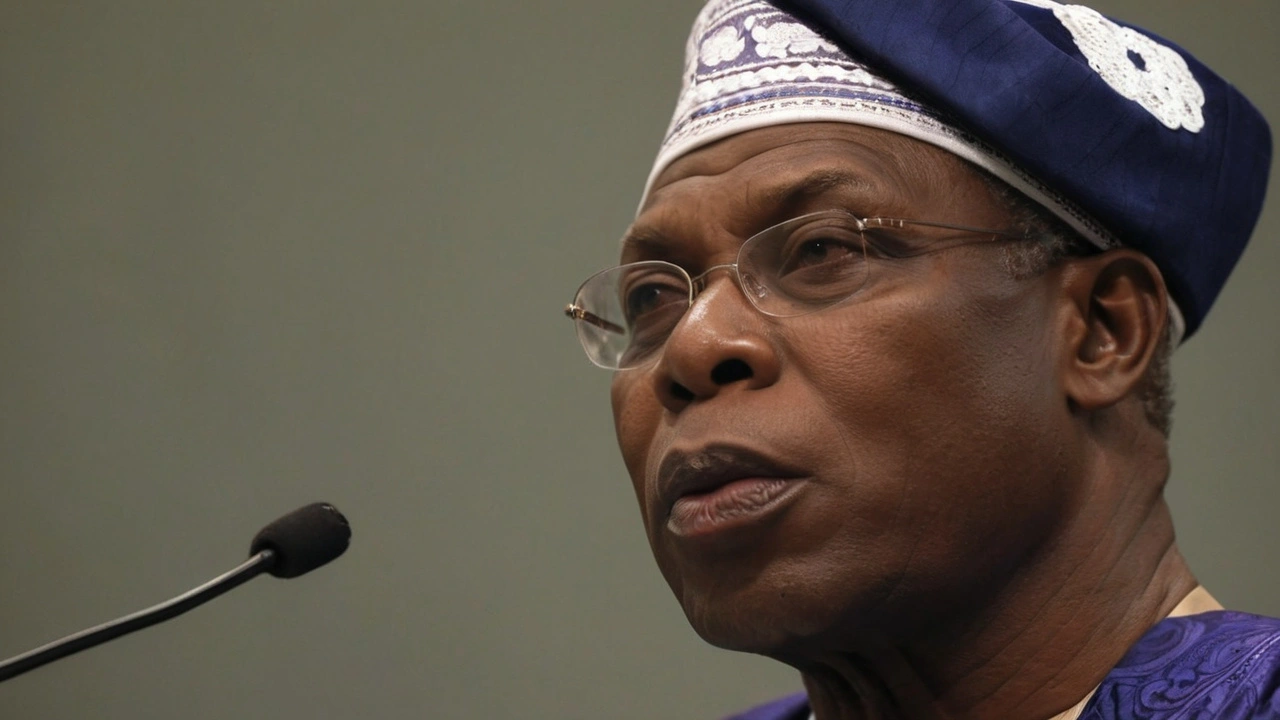Olusegun Obasanjo's Stinging Critique of Nigerian Leadership
In a moment of raw candor and sharp critique, former Nigerian President Olusegun Obasanjo delivered a scathing assessment of the current state of leadership in Nigeria. His comments have sparked widespread discussion and debate, underscoring deep-seated issues within the country's political landscape. Obasanjo, with his extensive experience and prominent position in Nigerian history, has rarely minced words when it comes to addressing the challenges facing the nation. This time, however, his words seemed to carry an added weight, perhaps reflective of a growing urgency for change.
Corruption and Poor Governance
Obasanjo's main focal point in his recent speech was the pervasive corruption and poor governance that have, in his opinion, crippled Nigeria. He lamented that numerous leaders were contributing to the degradation of the country through their selfish actions and a blatant disregard for public accountability. For Obasanjo, the issue isn't just about isolated incidents of corruption but a systemic problem that has entrenched itself within the Nigerian political fabric.
The Impact of Corruption
Corruption in Nigeria isn't a new phenomenon, but Obasanjo highlighted how the current cadre of leaders seemed particularly egregious in their misconduct. According to him, the focus on personal wealth accumulation has overshadowed any meaningful pursuit of national development. These leaders, he suggested, have become so enmeshed in their crooked ways that they view the nation's resources as a personal piggy bank. The consequences of such actions are catastrophic for a country rich in natural resources yet plagued by poverty and underdevelopment.
Lack of Accountability
Obasanjo's criticism did not stop at corruption; he expressed deep anger over the lack of accountability among Nigeria's political class. He pointed out how leaders consistently evade justice, often using their positions and influence to escape the consequences of their actions. For Obasanjo, this lack of accountability perpetuates a vicious cycle where leaders feel emboldened to continue their corrupt practices without fear of reprisal.

Call for Political Reform
One of the most significant aspects of Obasanjo's speech was his call for comprehensive political reform. He emphasized the urgent need to overhaul Nigeria's political and legal systems to put in place stricter mechanisms for holding leaders accountable. This, he believes, would be a crucial step towards curbing corruption and promoting good governance. Obasanjo also suggested that without such reforms, the issues plaguing Nigeria would persist, ultimately to the detriment of its citizens.
The Broader Discussion
Obasanjo's remarks were part of a broader discussion on the various challenges facing Nigeria today. He touched upon several critical issues, including economic instability, social unrest, and insecurity. Each of these problems, in his view, is exacerbated by poor leadership and corrupt practices. By addressing these root causes, Obasanjo argued, Nigeria could make significant strides towards a more stable and prosperous future. His critique serves as a powerful reminder of the importance of integrity and accountability in leadership. It also underscores the need for citizens to demand more from their leaders, pushing for a political environment where ethical conduct is the norm rather than the exception.
Significance of Obasanjo's Statements
Obasanjo's blunt assessment is significant not only because of his past role as Nigeria's President but also due to his ongoing influence in the political sphere. His willingness to speak out so forcefully sends a strong message to both the politicians and the populace. It is a call to action, urging Nigerians to recognize the depth of the problems they face and to be proactive in seeking solutions. His speech has resonated with many who share his frustration and see the urgent need for change.

The Road Ahead
The challenges facing Nigeria are undeniable, and Obasanjo's comments have opened up a necessary conversation about how to address them. As the country grapples with these issues, the path forward will require collective effort from both leaders and citizens. This means fostering a culture of transparency, implementing effective reforms, and demanding accountability at every level of government. Obasanjo's call for locking up corrupt leaders may sound extreme, but it reflects the desperation felt by many who are tired of seeing potential wasted by poor governance. In the end, the solution lies in rigorous efforts to improve governance structures and enforce laws objectively.
The Call for Change
As Nigerians reflect on Obasanjo's remarks, the broader call for change is evident. It is a plea for a transformative approach to how the country is governed. One that prioritizes the public good over personal gain, and integrity over manipulation. The former president's speech should be seen as a beacon, shining a light on the critical need for robust and ethical leadership. Change will not come overnight, but with sustained effort and commitment, Nigeria can begin to address the deep-rooted problems that Obasanjo so passionately highlighted.


Comments
MONA RAMIDI
This is just another endless saga of broken promises!
August 10, 2024 at 22:50
grace riehman
I think it’s important to see that the problems highlighted are not unique to any one country. We all have some deep issues, and it’s ok to learn from each other’s mistakes. Obasanjo’s passion definitely adds a powerful voice to the conversation, and many will feel inspired by his call for change. Let’s keep the dialogue respectful and inclusive, even if we sometimes typo our way through it.
August 10, 2024 at 23:00
Vinay Upadhyay
Oh, where to begin? The former president’s rant reads like a list of clichés that have been recycled since the dawn of Nigerian politics. He claims corruption is "systemic," yet offers no fresh data, just the same old accusations we’ve heard since the 1990s. The tone is alarmist, dripping with melodrama, as if the nation will implode the moment he stops speaking. He mentions “personal piggy banks” – a metaphor so overused it deserves a tombstone. One might appreciate the passion, but the lack of concrete proposals makes it feel like a venting session rather than a strategic blueprint. He calls for “stricter mechanisms,” yet fails to define what those mechanisms are, leaving us with a vague demand for a vague solution. In his fury, he tosses out terms like “political reform” without acknowledging the complexities of Nigeria’s federal structure. The rhetorical flourish about “locking up corrupt leaders” sounds more like a line from a crime drama than a policy suggestion. While his frustration is palpable, it borders on self‑serving grandstanding. The piece also omits any mention of the economic challenges that fuel corruption, ignoring the broader context. Moreover, his critique doesn't address the role of foreign actors or multinational corporations in the resource exploitation. The audience gets a tale of blame without accountability, which is oddly hypocritical for someone who once held power. And let’s not forget the occasional grammatical slip‑ups that betray the claim of a seasoned statesman. It’s almost as if he wants us to focus on the emotional punch rather than the factual content. In short, the speech is a theatrical lament, full of fervor but lacking the substantive policy depth needed to move the needle.
August 10, 2024 at 23:10
Eve Alice Malik
Even though the previous comment was a bit intense, there’s truth in calling for clearer solutions. A concrete roadmap – maybe a timeline for anti‑corruption agencies – would make the call to action more tangible. It’s also worth noting that civic education can empower citizens to demand accountability. Engaging the younger generation with practical tools could help bridge the gap between rhetoric and reform.
August 10, 2024 at 23:20
Debbie Billingsley
While the criticism is noted, it’s essential to recognize the strides made in recent years toward stability. Nigeria’s resilience deserves acknowledgment alongside the challenges.
August 10, 2024 at 23:30